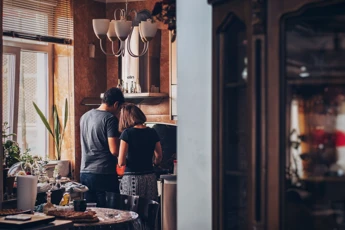Your deposit is the lender’s safety net, and shows your commitment to the purchase. The amount of deposit you need for a mortgage will vary depending on various factors. These could include your financial situation, the property's value, and the lender's specific lending criteria. Here are the general rules to follow when deciding what deposit you need for a mortgage:
The minimum deposit you need for a mortgage
The baseline deposit for a mortgage is usually 5% of the property's value. What this means is that you would get a 95% mortgage, where the lender essentially finances 95% of the purchase price. While 5% may sound manageable, it can still represent a significant amount for many first time buyers. However, there are a few government-backed schemes, such as the First Homes and Mortgage Guarantee schemes, that could help.
Higher deposits: enhanced options and reduced risk
If you can put down a bigger deposit, maybe 10-20%, you’ll find you have some extra advantages. Lenders often view larger deposits favourably, which means you could qualify for lower interest rates and more favourable mortgage terms. This could save you thousands of pounds in interest payments over the life of your mortgage in interest alone.
While 95% mortgages are widely available, several factors can influence the minimum deposit a lender will ask for. Your credit score and employment history play an important role in determining your creditworthiness, which lenders use as a benchmark when working out your ability to repay the loan.

The importance of mortgage advice
Mortgage deposits can be complicated, especially when you’re just starting out. We recommend seeking out professional help from a mortgage adviser, who can thoroughly assess your financial situation, provide personalised advice, and help you find the most suitable mortgage option for your needs.
If you’re not sure whether your deposit is big enough for a mortgage, or don’t know what deposit you need to get a mortgage, get in touch with us today!
Important information
Your home may be repossessed if you do not keep up repayments on your mortgage.
There may be a fee for mortgage advice. The actual amount you pay will depend on your circumstances. The fee is up to 1% but a typical fee is 0.3% of the amount borrowed.







